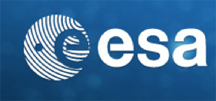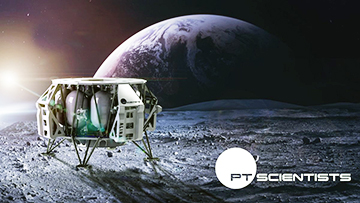

The European Space Agency (ESA) and ArianeGroup, as prime contractor of a consortium of Arianegroup, Space Application Services and PTScientists, have signed a contract to study and prepare ESA's planned ISRU mission.
 The ESA mission focuses on the use of the lunar regolith, the loose soil layer that is resident on the bedrock of a planet. Being able to extract water and oxygen from regolith is a prerequisite for a sustainable presence of humans on the Moon. In addition, the necessary fuel for future missions into deeper parts of the solar system could be produced in this way.
The ESA mission focuses on the use of the lunar regolith, the loose soil layer that is resident on the bedrock of a planet. Being able to extract water and oxygen from regolith is a prerequisite for a sustainable presence of humans on the Moon. In addition, the necessary fuel for future missions into deeper parts of the solar system could be produced in this way.
ArianeGroup and its subsidiary Arianespace, which will provide the Ariane 6 launch vehicle, the Berlin-based new-space startup PTScientists, which will provide the lunar lander, and the Belgian company Space Applications Services, which will provide ground segment, communications and related services, have joined forces to conduct this study. The wholly European consortium will be able to provide services for the entire mission, from launch to transport of the payloads required for the ESA mission to the Moon, landing on the Moon's surface and communication back to Earth.
Executive Comments
Robert Böhme, CEO and Founder of PTScientists GmbH, said that the organization is pleased with the confidence placed in the firm by the European Space Agency ESA. The award of the ISRU study to the strong consortium of ArianeGroup, SAS and PTScientists underlines the current shift in the space industry.
Dr. David Parker; the Director, Human and Robotic Exploration at ESA, added that the use of space resources could be a key to sustainable lunar exploration and this study is part of ESA's comprehensive plan to make Europe a partner in global exploration in the next decade — a plan ESA will put to the Ministers for decision later this year at the Space19+ Conference.

